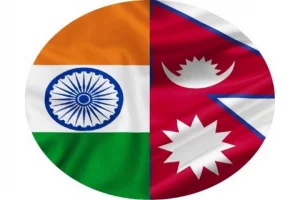India could be reaping a rich harvest following External Affairs Minister S. Jaishankar’s seminal visit to Israel.
The fairly lengthy stay in the country, with which India bonds at several levels, including civilizational, is generating a fall-out which will impact the region, where Turkey has actively become a driver of events in the Muslim world.
The visit took place at a time when, CRIPTAQ, a robust informal China centric alignment with Russia, Iran, Turkey, Afghanistan and Qatar as an outlier is emerging to shape the region. Several of these countries pose a bilateral and regional challenge to India and Israel’s core interests.
The US on its part, especially the Trump administration was keen to ensure a regional architecture where Israel’s security could be ensured and hence the Abraham Accords. But as Biden Administration, despite stern opposition
It is in the framework of the rise of radicalism, spearheaded by Turkey, Qatar and ideologically driven by the Muslim Brotherhood that the need to contain it that Jaishankar’s visit to Tel Aviv becomes salient.
The headline grabbing event of the visit was a video conference among a new quartet, which apart from India and Israel, includes the United Arab Emirates (UAE) and the United States as partners—a loose grouping that can stand up to the rise of radicalism. The US Secretary of State, Antony Blinken took the initiative to host the event during Jaishankar’s visit to Israel.
The staging of the conclave has a backstory. Earlier in the month Secretary Blinken invited his Israeli and UAE counterparts for a meeting before embarking on a new economic edifice which also includes India.
Separately, India has been aspiring to have a trilateral cooperation between IUI (India, UAE and Israel) especially in key areas of economy, cyber security, counter terrorism, food and energy and maritime security. The list also includes tech collaboration including in innovation, space and defence. The two initiatives therefore converged in the first videoconference of an emerging quartet that mostly focuses on West Asia. For India a strong economic dimension also imparted a push for the formation of the Quartet. UAE remains the third largest trading partner which is looking to invest over $75 bn into new Indian opportunities; and Israel remains her key technology and 3rd biggest defence partner.
Moreover, India has been discussing a trade deal with the US and has announced negotiations of a Comprehensive Economic Cooperation Agreement (CEPA) with Abu Dhabi and an FTA (Free Trade Agreement) with Tel Aviv during the visit of the EAM.
In the background the Abraham Accords has also softened the ground for this convergence of the newly emerging Quad to take place. Encouraged by the Trump administration, Israel has established formal diplomatic relations with the UAE and Bahrain. The Biden administration has backed the move, in a bid to reduce Israeli resistance to Washington’ s inclination to sign a new nuclear deal with Iran, Tel Aviv’s arch-foe. The signing of the Abraham Accords was therefore essential to placate the Israeli and Jewish sentiment.
On a bilateral plain, Jaishankar’s visit was no less important. The EAM met his counterpart Foreign Minister and Alternate PM Yair Lapid, Prime Minister Naftali Bennet. He also called on President Herzog and the Speaker of Knesset. His people- to- people engagements included interaction with the 85000 strong Jewish community of Indian origin as well as the Israeli business community.
Since the former Prime Minister overshadowed the steering of India-Israel ties, it was important for Jaishankar to establish first hand contacts with the new leadership.
During the visit, New Delhi and Tel Aviv agreed to mutually recognise each other’s Covid vaccine certificates. Israel also joined the International Solar Alliance -an Indian multilateral initiative that will set new opportunities for working together on renewables and other forms of green technology
The visit also framed the agenda of the next couple of years. Jaishankar spotlighted that, “Next year marks the 30th anniversary of full diplomatic relations between India and Israel. India is celebrating the 75th year of our own independence. In 2023, Israel too would be celebrating the 75th year of its independence. These occasions are significant milestones to start new voyages and to cover new horizons.”
During the EAM’s visit an Indian Air Force contingent participated for the first time with its five upgraded Mirage2000 fighter jets in Israel’s largest and most advanced “Blue Flag” aerial exercises (October 17-28) along with the US, the UK, France, Germany, Italy and Greece. The exercise symbolises that robust India-Israel defence partnership as well as New Delhi’s emerging military relationship with like-minded countries in the Mediterranean Sea.
Also Read: India, US, Israel and UAE join hands to tackle rising tide of radicalisation
(The writer is a former Indian Ambassador to Jordan, Libya and Malta; views expressed are personal)




















